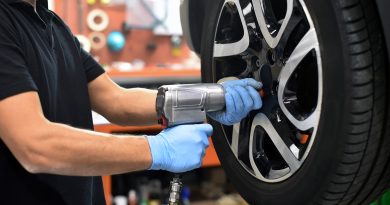Early Cars Industry in Bangladesh
The early cars industry in Bangladesh was a significant part of the country’s economic development. The first cars were imported into Bangladesh in the early 20th century, and they were primarily luxury items that were only affordable for the wealthy. However, over time, the industry grew, and more people began to purchase cars, leading to the establishment of local manufacturing plants and showrooms.
Progoti Industries
The first cars to be imported into Bangladesh were primarily from the United Kingdom, where they were manufactured. These cars were typically luxury vehicles and were only affordable for the wealthy. However, as the demand for cars grew, more affordable options became available. In the 1960s, the first local car manufacturing plant was established in Bangladesh. Progoti Industries, located in Narayanganj, produced the ‘Sonali’ brand of cars. These cars were affordable and designed to meet the needs of the local market. At techoffersbd you can see the cars and bike prices and their specification.
‘Sonali’ brand:
‘Sonali’ brand:
The ‘Sonali’ brand of cars was popular among the middle class, and the demand for cars continued to grow. In the 1980s and 1990s, the country saw an influx of imported cars, particularly from Japan. These cars were affordable and quickly became popular with the middle class. The 2000s saw significant growth in the automobile industry in Bangladesh. Several local assembly plants were established, and the country began to produce its own brands of cars, including the popular ‘Runner’ brand. These cars were affordable and designed to meet the needs of the local market.
The automobile industry in Bangladesh faces several challenges, including a lack of infrastructure, regulatory issues, and a shortage of skilled workers. However, the industry continues to grow, contributing to the country’s economic growth and providing employment opportunities for many people.
One significant challenge facing the automobile industry in Bangladesh is a lack of infrastructure. The country’s roads are often in poor condition, which can make driving difficult and dangerous. In addition, the country lacks the necessary infrastructure to support the automobile industry, including manufacturing plants and assembly lines.
Regulatory issues
Regulatory issues are another challenge facing the automobile industry in Bangladesh. The country’s regulatory environment is complex and can be difficult to navigate, making it challenging for companies to establish themselves in the market. In addition, the government’s policies regarding the automobile industry are often inconsistent, which can create uncertainty for companies.
A shortage of skilled workers is also a significant challenge facing the automobile industry in Bangladesh. The country lacks a skilled workforce, which can make it difficult for companies to find the talent they need to grow and expand their operations. This shortage of skilled workers can lead to increased costs and lower quality products, which can make it difficult for companies to compete in the global market.
The early cars industry in Bangladesh was a significant part of the country’s economic development. The industry has faced several challenges over the years, including a lack of infrastructure, regulatory issues, and a shortage of skilled workers. However, the industry continues to grow, contributing to the country’s economic growth and providing employment opportunities for many people. With the right policies and investments, the automobile industry in Bangladesh has the potential to become a significant player in the global market.




